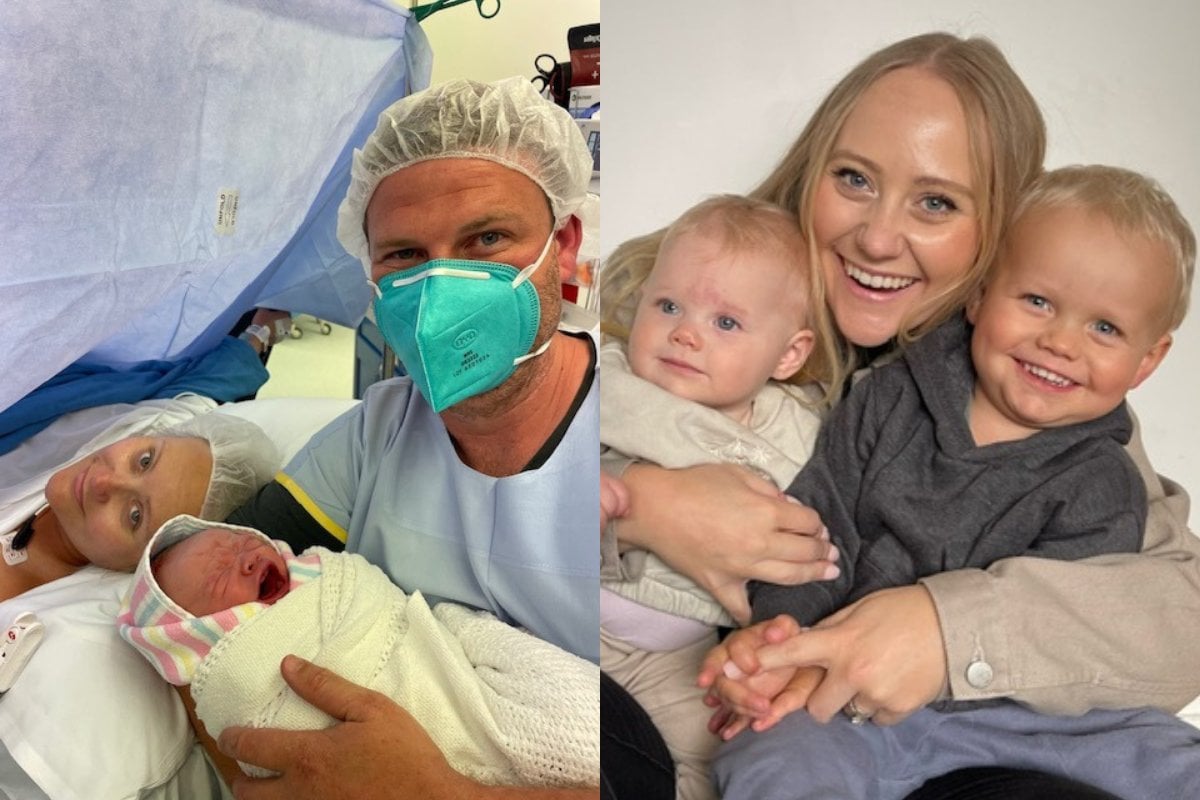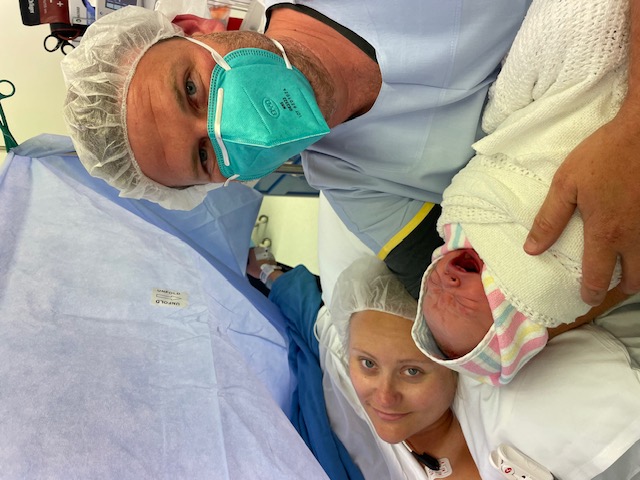
When Alicia Woodfield discovered she was pregnant after four months of trying, she was over the moon.
"We were really lucky that it happened relatively quickly for us," the 31-year-old mother of two told Mamamia.
"But it was during COVID, and being pregnant during lockdowns was weird and isolating," she said.
"I wanted to do birthing classes but they were all either cancelled or being held online, and even the online classes were all filling up really quickly, so I didn’t feel like I had the same level of care throughout my pregnancy."
One thing Alicia, who has a pre-existing heart condition that is controlled by a healthy lifestyle, wanted to be sure of was that she was fine to try for a vaginal birth if possible.
"I wanted to try for a vaginal birth if I could. I went and saw my cardiologist, who told me early on that I'd be fine to push, and it was all cleared. Because of the heart condition I was still considered 'high risk', but I was assured it wouldn't be a problem."
.jpeg?alt=media&token=7d00fbce-7dae-4ba6-b0f5-b0c4773bd902) Image: Supplied.
Image: Supplied.

.jpeg?alt=media&token=0995b474-4a3c-4989-8379-33b2947043e3)
.jpeg?alt=media&token=bd2b32b3-4ffd-489a-b730-947b755eeeb7)